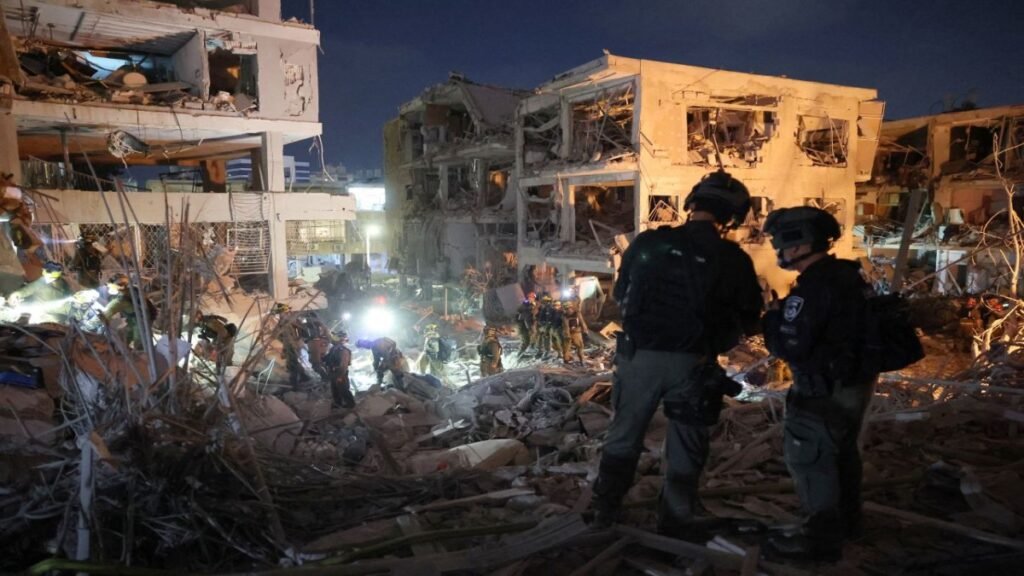The Middle East is on edge as the conflict between Israel and Iran intensifies, marking some of the most severe hostilities in decades. Over the past week, the two nations have exchanged a series of airstrikes and missile attacks, raising global concerns about a broader regional war. Here’s a clear and concise breakdown of the latest developments in this escalating crisis, based on recent reports and regional sentiment.
A Week of Unprecedented Strikes
The conflict erupted on June 13, 2025, when Israel launched a surprise operation, dubbed “Operation Rising Lion,” targeting Iran’s nuclear facilities and military sites. The Israeli military struck key locations, including the Natanz nuclear enrichment plant, destroying its above-ground infrastructure, and reportedly killed several high-ranking Iranian military officials and nuclear scientists. Iran’s state media confirmed significant casualties, with estimates of over 200 deaths, including civilians, as residential areas in Tehran were hit.
In retaliation, Iran fired hundreds of ballistic missiles at Israel, targeting cities like Jerusalem, Tel Aviv, and Haifa. Israeli defenses, bolstered by U.S. support, intercepted many of these missiles, but at least 24 people in Israel have been killed, with over 600 injured. Iran’s Supreme Leader, Ayatollah Ali Khamenei, vowed a “harsh response,” signaling no immediate end to the hostilities. On June 17, Israel struck again, hitting Iran’s state broadcasting headquarters and oil facilities, further disrupting Tehran’s infrastructure.
Global Reactions and U.S. Involvement
The international community is scrambling to respond. U.S. President Donald Trump, who cut short his attendance at the G7 summit in Canada, has taken a hardline stance, calling for Iran’s “unconditional surrender” while denying plans to target Ayatollah Khamenei directly. The U.S. has deployed additional fighter jets to the Middle East and extended the presence of existing forces, though officials insist these moves are defensive. Speculation is rife about potential U.S. involvement, with Israeli officials reportedly urging the use of bunker-busting bombs against Iran’s fortified nuclear sites, such as the Fordow facility.
European leaders, including European Commission President Ursula von der Leyen, have called for de-escalation, describing the situation as “deeply alarming.” The United Nations, through Secretary-General Antonio Guterres, has urged both sides to exercise “maximum restraint” to avoid a wider conflict. Meanwhile, the United Arab Emirates has waived overstay fines for Iranian citizens stranded due to airspace closures, reflecting the region’s logistical challenges.
Regional Implications and Civilian Toll
The conflict has disrupted daily life across both nations. In Iran, Tehran’s governor has shifted government employees to remote work, except for essential services, as explosions continue to rock the capital. Civilians, recalling the Iran-Iraq War of the 1980s, are bracing for prolonged fighting, with many seeking shelter in underground facilities. In Israel, air raid sirens have become a frequent reality, with residents permitted to leave bomb shelters only briefly after missile barrages.
The destruction of Iran’s oil facilities, particularly at Kharg Island, has raised fears of global energy price spikes, especially as the summer driving season begins. Analysts suggest that the severity of Iran’s response will determine the extent of economic fallout, with oil prices already climbing.
Diplomatic Efforts Falter
Hopes for diplomacy have dimmed. Nuclear talks between the U.S. and Iran, scheduled to resume in Oman, were canceled after the latest strikes. Iran’s leadership, facing domestic pressure to retaliate, has rejected immediate negotiations. Russia, a key partner of Iran, has expressed alarm but stopped short of military support, focusing instead on potential mediation to bolster its regional influence.
What’s Next?
As the conflict enters its sixth day, the world watches anxiously. Israel claims “full aerial superiority,” but Iran’s missile capabilities remain a threat. The loss of key Iranian commanders, including Hossein Salami of the Revolutionary Guards, could weaken Tehran’s military strategy, yet it has galvanized public support in Iran, where many view Israel as the aggressor. For Israel, Prime Minister Benjamin Netanyahu’s goal appears to extend beyond neutralizing Iran’s nuclear program, with some analysts suggesting an aim to destabilize the regime itself.
For ordinary citizens in both nations, the human cost is mounting. The international community faces a critical challenge: can diplomacy prevail, or will the region spiral into a broader war? As events unfold, the stakes could not be higher.
Also read: Operation Rising Lion: Inside Israel’s Bold Attack on Iran’s Nuclear Sites

